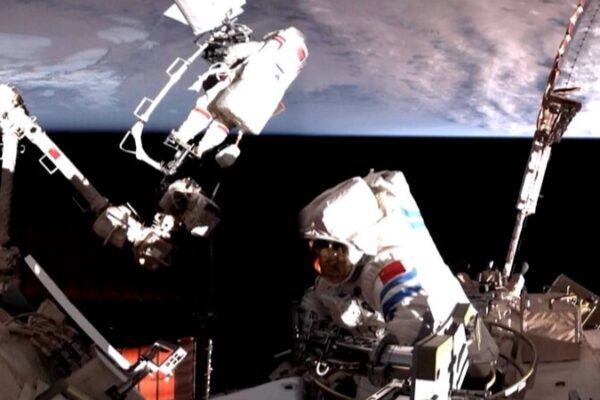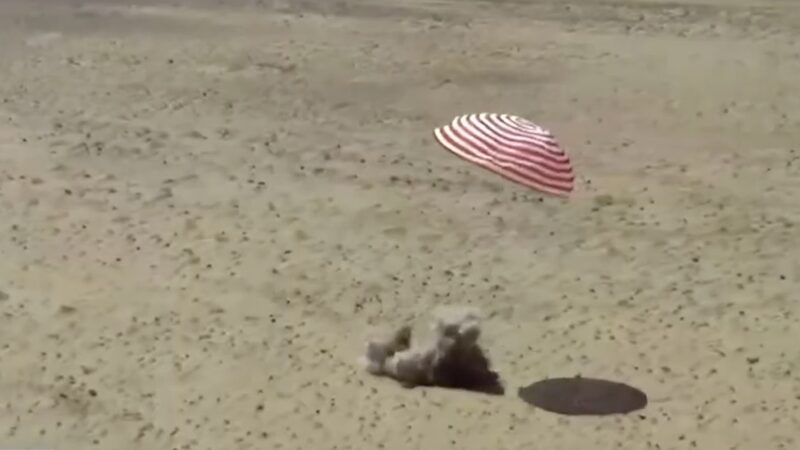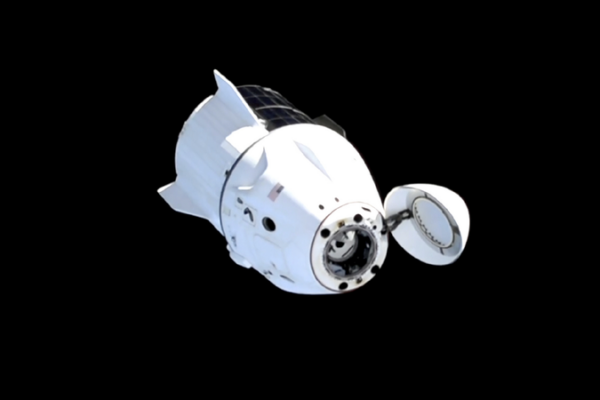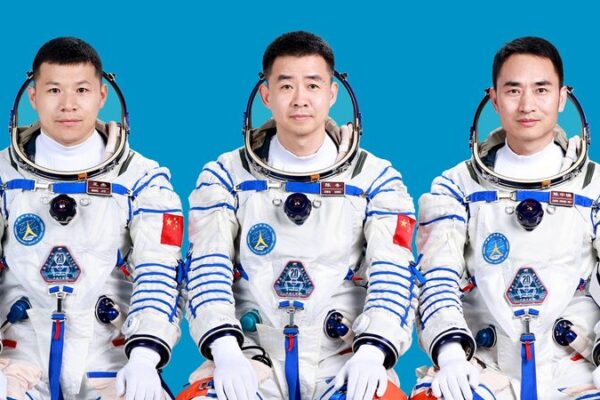As China’s Shenzhou-19 mission reaches its halfway point, the three astronauts aboard the nation’s space station, orbiting 400 kilometers above Earth, have shared insights into their unique lives in space during the Spring Festival.
The crew commander, Cai Xuzhe, who returned to the space station after about two years, described the experience as “warm and familiar” in a video released on Thursday. This marks Cai’s second time working and living in the space station, but his first time celebrating the Spring Festival there. In 2022, he spent six months in space during the Shenzhou-14 mission.
“Returning to our ‘space home’ feels incredibly special, especially during the Spring Festival,” Cai said. Over the past three months, the crew has completed numerous tasks, including a handover with the Shenzhou-18 crew, routine maintenance, and two spacewalks. These extravehicular activities (EVAs) are essential for repairs, experiments, and testing equipment outside the station.
Cai emphasized the importance of their rigorous training, highlighting system-wide emergency pressure drills and medical rescue exercises. “These exercises have significantly improved our ability to handle unexpected situations, allowing us to work more efficiently and safely,” he noted.
Supported by ground teams, the astronauts have also advanced scientific experiments, including cutting-edge research on human brain organoids and new material exposure tests in the harsh environment of space. “We are steadily progressing with our scientific missions, focusing on space life science, microgravity physics, space material science, and aerospace medicine,” Cai added.
Fellow astronaut Song Lingdong, who participated in two spacewalks, shared his awe-inspiring experiences. “Before my first EVA, I imagined what it would be like, but nothing prepared me for the moment I opened the hatch and saw Earth. It was breathtaking,” he recalled. “Climbing on the module walls, I felt as if I was walking on clouds.”
“I was mesmerized by the beauty of space, but at the same time, I felt the weight of our mission,” Song said. Their first nine-hour spacewalk proved China’s new-generation spacesuits to be both safe and effective.
Addressing public curiosity, Song explained how astronauts stay energized during long EVAs. “We eat high-calorie meals beforehand and drink functional beverages during the task. We focus intensely on our work and don’t feel hungry,” he explained.
Life aboard the space station isn’t all work. During the Spring Festival, the crew took time to rest, call their families, and capture stunning photos of Earth and space. “We sent New Year greetings from space and recorded videos to cherish these moments,” said Song, who plans to document his experiences for his children.
Wang Haoze, China’s first female space engineer working in the space station, expressed pride in China’s space achievements, marveling at the sophisticated systems of their “space home.” Despite their busy schedule, the astronauts find joy in simple activities. “We float freely like ‘sky flyers,’ lift heavy objects effortlessly, interact with our AI assistant, and even grow vegetables and raise fruit flies,” Wang shared.
Wang enjoys writing space diaries, but her favorite pastime is gazing at Earth through the porthole, admiring the planet’s landscapes from vast oceans to majestic mountains. “Seeing our homeland from space fills me with excitement, pride, and longing,” she said.
To combat the effects of weightlessness, the crew follows a strict exercise regimen using specialized equipment like the space treadmill, stationary bike, and resistance devices. “These exercises keep our bones, muscles, and hearts healthy. With balanced meals, we feel strong and energized,” Wang explained.
The crew also finds time to bond over meals, share humor, and maintain their spirits. As they celebrated three months in orbit during the Spring Festival, Wang sent a heartfelt message: “May our nation thrive, and may we achieve new heights together, from space to Earth.”
This is the third Spring Festival since the full completion of China’s space station. Nine crew members from Shenzhou-15, Shenzhou-17, and Shenzhou-19 have welcomed the New Year and the Spring Festival in space.
Reference(s):
China's Shenzhou-19 astronauts share details of work and life in space
cgtn.com








